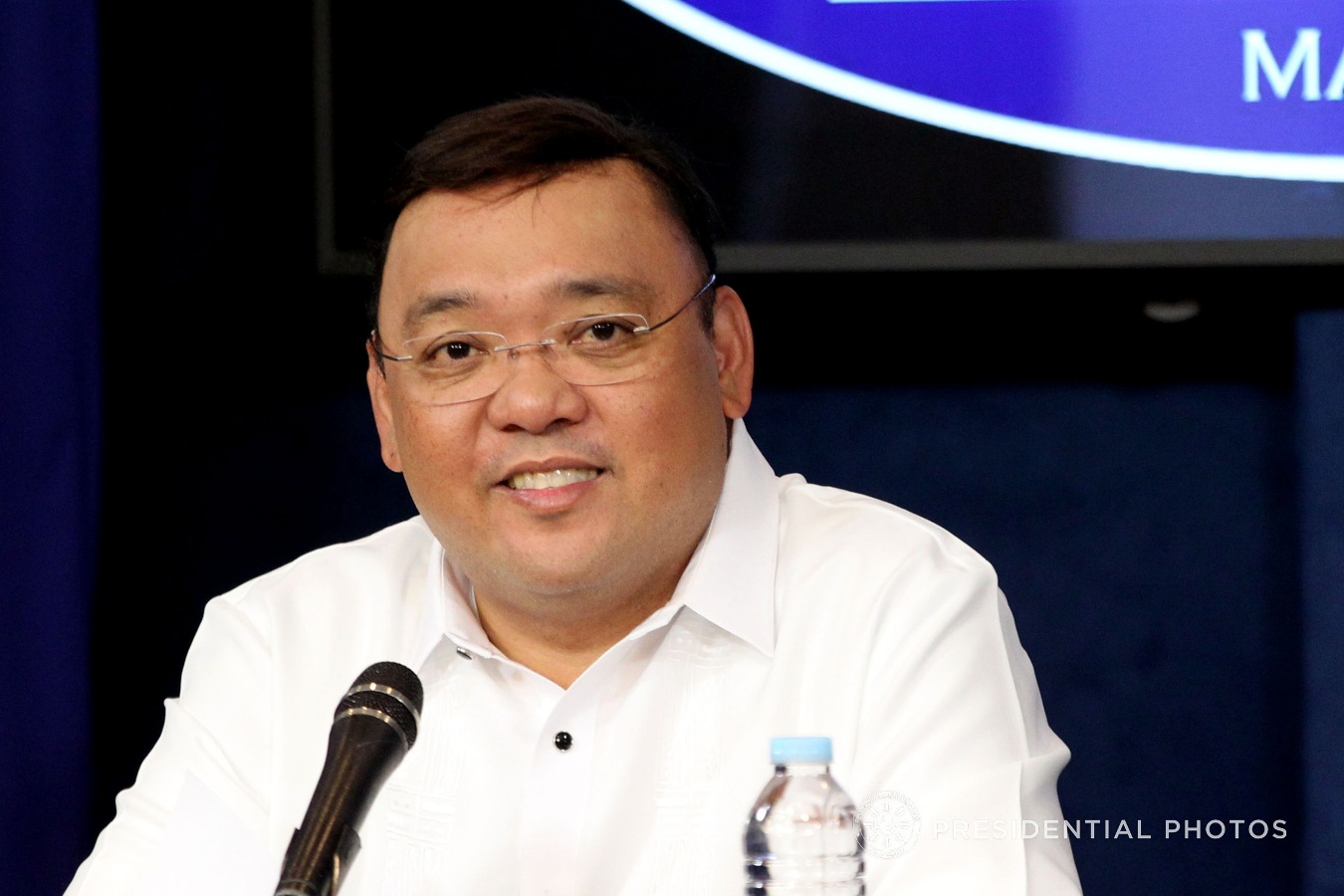Headline
Palace: Peace talks will resume if rebels ready to follow gov’t terms

FILE: “Kung sila po ay handa na makipag-usap (If they are ready to talk) under the conditions laid down by the Philippines, by President Duterte, then peace talks can resume kung ganoon (if that is the case),” Presidential Spokesperson Harry Roque in a press briefing in Tanauan, Leyte. (YANCY LIM/PRESIDENTIAL PHOTO)
The government will only return to the negotiating table with the Communist Party of the Philippines-New People’s Army-National Democratic Front of the Philippines (CPP-NPA-NDFP) if the communist rebels will follow the terms set by President Rodrigo Duterte, Malacañang said on Sunday, April 8.
“Kung sila po ay handa na makipag-usap (If they are ready to talk) under the conditions laid down by the Philippines, by President Duterte, then peace talks can resume kung ganoon (if that is the case),” Presidential Spokesperson Harry Roque in a press briefing in Tanauan, Leyte.
In a statement posted in the Philippine Revolution Web Central website on Saturday, the CPP said it is open to returning to peace negotiations with the government but noted work on agreement on socio-economic reforms must move forward.
“The Filipino people await a Comprehensive Agreement on Socio-economic Reforms (CASER) that would address the aspirations of the people to seek an end to their oppressive and exploitative conditions,” it said.
The communist rebels also asked for the proclamation of presidential amnesty to release all political prisoners in connection with agreements during the first round of talks in 2016.
The CPP stressed that it upholds the position of the NDFP that there should be “no preconditions” on the resumption of peace talks as stated in The Hague Joint Declaration.
“The Comprehensive Agreement on Respect for Human Rights and International Humanitarian Law (CARHRIHL) must be reaffirmed and implemented,” it added.
In response to this, Roque said, “Iyang mga hinihingi naman nila iyan, pwedeng doon na sa kasunduan mismo ipasok. So sa akin po hindi hadlang iyan doon sa pagbubukas muli ng peace talks (The things they are asking for can be inserted in the agreement itself. For me, that will not be a hindrance to the re-opening of peace talks).”
CPP founding chairman Jose Maria Sison earlier pointed out that both parties must not set preconditions for the resumption of negotiations.
“Kapag may gusto, dapat may laya ‘yung anumang panig na magreklamo. Ihapag niya sa pag-uusapan ng dalawang panig. Doon nalulutas ‘yung problema (If a group wants something, the complaining party should have freedom to complain. It must be laid out in the talks of both sides. That is where the problem is resolved),” he said.
The President terminated the peace negotiations with the communist rebels last November 23 through Proclamation 360. It was followed by the signing of Proclamation 374, which declared the NPA and the CPP as terrorist group.
CPP-NPA not yet a terrorist group
Meanwhile, Roque clarified that the CPP, and its armed wing NPA, would only be tagged as a terrorist organization if a court legally tells so.
“There is nothing to reconcile because there is no order yet from the courts that the NPA… CPP-NPA is a terrorist group. Until there is an order, they remain… they do not become a terrorist group and this is pursuant to the law itself, the Human Security Act,” Roque explained.
The Department of Justice (DOJ) last February 21 filed a petition before the Manila Regional Trial Court (RTC) seeking to legally declare CPP-NPA as terrorist group, citing Republic Act 9372, otherwise known as The Human Security Act of 2007.
The petition, which was signed by Senior Associate State Prosecutor Peter Ong, accused the CPP-NPA of having an “evil plan of imposing a totalitarian regime.”
The CPP-NPA were already included in the list of foreign terrorist organizations of the United States (U.S.) and European Union (EU).





















